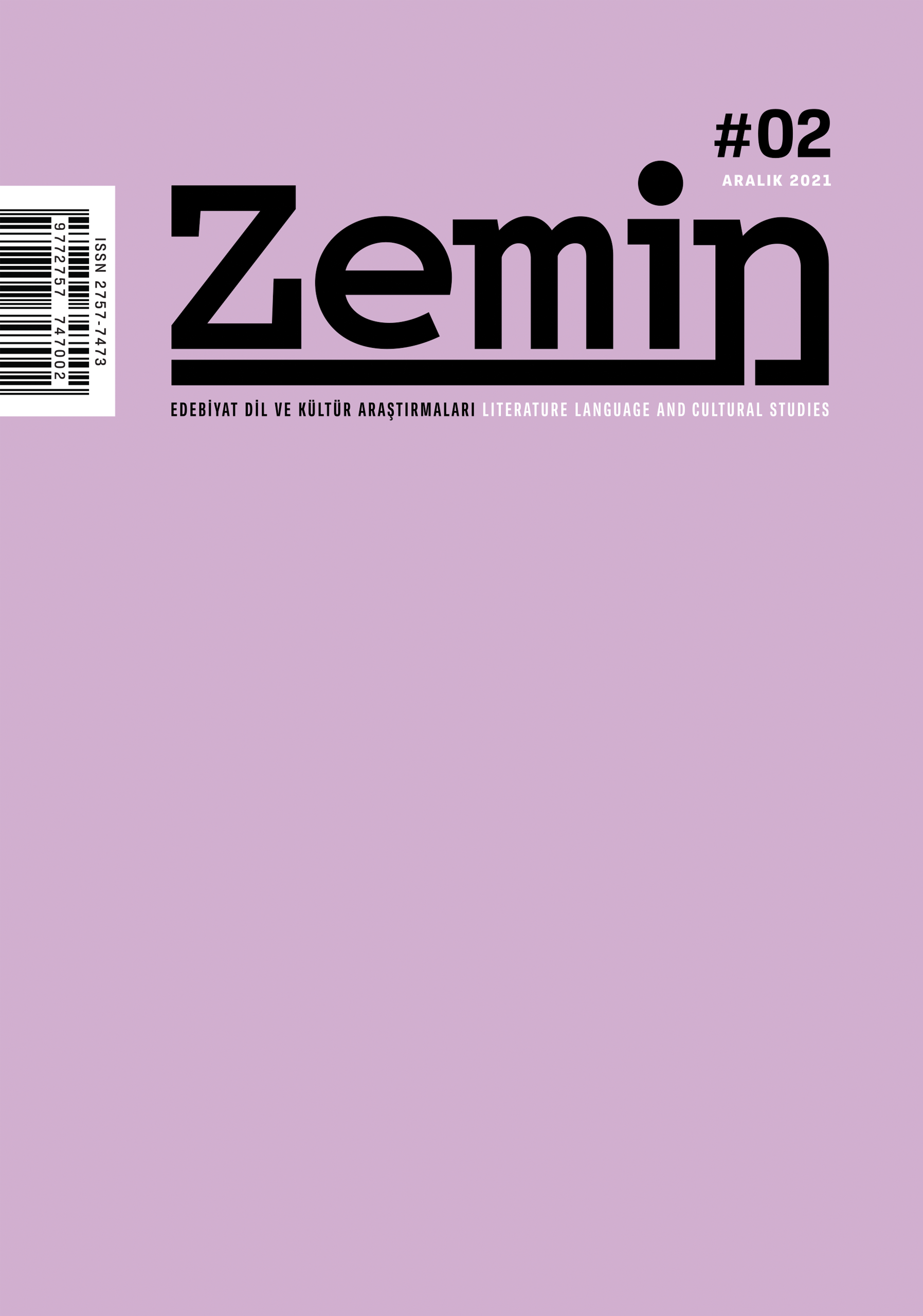Against the Mood Account of Turkish Nominalizers
DOI:
https://doi.org/10.5281/zenodo.8017414Keywords:
Turkish nominalization, factive, proposition, event, indicative, subjunctiveAbstract
This paper addresses the issue of what determines the choice of nominalizer in Turkish nominalized clauses and presents data that discredits the account that the Turkish nominalizers -DIK and -mA mark indicative and subjunctive moods respectively. It then presents several pieces of evidence suggesting that -DIK marks the clause as a proposition, whereas -mA induces an eventive/stative reading. This conclusion is drawn from (i) the contrasting distribution of either nominalizer in the non-head position of compounds headed by proposition- vs event-denoting nominals, (ii) the selectional behavior of predicates that require subjunctive complements, and (iii) the (im)possibility of either form to occur in the subject position.
References
Asher, Nicholas. “Events, Facts, Propositions, and Evolutive Anaphora.” In Speaking of Events, edited by James Higginbotham, Fabio Pianesi and Achille C. Varzi, 123-50. Oxford: Oxford University Press, 2000.
Asher, Nicholas. Reference to Abstract Objects in Discourse. Dordrecht: Kluwer, 1993.
Aygen, Gülşat. Finiteness, Case and Clausal Architecture. Doctoral dissertation. Harvard University, 2002.
Belletti, Adriana, and Luigi Rizzi. “Psych-verbs and θ-theory.” Natural Language & Linguistic Theory 6, no. 3 (1988): 291-352.
Csató, Éva Á. “Non-finite Verbal Constructions in Turkish.” In Altaica Osloensia: Proceedings of the 32. Meeting of the Permanent International Altaistic Conference. edited by Bernt Brendemoen, 75-88. Oslo: Universitetsforlaget, 1990.
Csató, Éva Á. Two Types of Complement Clauses in Turkish. Vol. 82, in Turcologica, 107-22. Wiesbaden: Harrassowitz Verlag, 2010.
Demirok, Ömer. “A Semantic Characterization of Turkish Nominalizations.” In Proceedings of the 36th West Coast Conference on Formal Linguistics, edited by Richard Stockwell, Maura O’Leary, Zhongshi Xu and Z. L. Zhou, 132-42. Somerville: Cascadilla Proceedings Project, 2019.
Dowty, David. “Thematic Proto-roles and Argument Selection.” Language 67, no. 3 (1991): 547-619.
Erguvanlı-Taylan, Eser. “Türkçede -DIK Ekinin Yantümcelerdeki İşlevi Üzerine.” Dilbilim Araştırmaları Dergisi 3 (1993): 161-71.
Erguvanlı-Taylan, Eser. “What Determines the Choice of Nominalizer in Turkish Nominalized Complement Clauses?” In Proceedings of the 16th International Congress of Linguists, edited by Bernard Caron. Oxford: Pergamon, 1998.
Göksel, Aslı, and Celia Kerslake. Turkish: A Comprehensive Grammar. London: Routledge, 2005.
Grimshaw, Jane. Argument Structure. Cambridge: MIT Press, 1990.
Gundel, Jeanette K., Nancy Hedberg, and Ron Zacharsky. “Cognitive Status and the Form of Referring Expressions in Discourse.” Language 69, no. 2 (1993): 274-307.
Hegarty, Michael. “Semantic Types of Abstract Entities.” Lingua 113 (2003): 891-927.
Heim, Irene, and Angelika Kratzer. Semantics in Generative Grammar. Oxford: Blackwell, 1998.
Iskender, Halil I.. “Türkçede Üçüncü Çoğul Şahıs İyelik Ekinin Biçimbilimsel Gösterimi.” In KLU TDE Bölümü 2009’dan 2019’a 10. Yıl Hatıra Kitabı, 213-26. Istanbul: Akademik Kitaplar, 2019.
Johanson, Lars. “Selection of Subjunctors in Turkic Non-finite Complement Clauses.” Bilig 67 (2013): 73-90.
Kornfilt, Jaklin. Case Marking, Agreement and Empty Categories in Turkish. Doctoral dissertation. Harvard University, 1984.
Kornfilt, Jaklin. “On Some Infinitival Wh-constructions in Turkish.” Dilbilim Araştırmaları 7 (1996): 192-215.
Kornfilt, Jaklin. “Subject Case in Turkish Nominalized Clauses.” In Syntactic Structures and Morphological Information, edited by Uwe Junghanns and Luka Szucsich, 129-215. Berlin/New York: Mouton de Gruyter, 2003.
Kornfilt, Jaklin. “Verbal and Nominalized Finite Clauses in Turkish.” In Finiteness: Theoretical and Empirical Foundations, edited by Irina Nikolaeva, 305-32. Oxford: Oxford University Press, 2007.
Kornfilt, Jaklin, and John Whitman. “Afterword: Nominalizations in Syntactic Theory.” Lingua 121 (2011): 1297-313.
Kunduracı, Aysun. “Etkileşimli Dilyapısı ve Türkçede Karmaşık Adlaşmalar.” Dilbilim Araştırmaları Dergisi 1 (2020): 1-31.
Lees, Robert. “Turkish Nominalization and a Problem of Ellipsis.” Foundations of Language 1 (1965): 112-21.
Link, Godehard. “The logical analysis of plural and mass nouns: A lattice theoretic approach,” In Meaning, use and interpretation of language, edited by Rainer Bäuerle, Christoph Schwarze and Arnim von Stechow, 302-323. Berlin: de Gruyter, 1983.
Mithun, Marianne. The Languages of Native North America. Cambridge: Cambridge University Press, 1999.
Özyıldız, Deniz. “Attitude Reports With and Without True Belief.” Proceedings of SALT. LSA (2017). 397-417.
Pamir Dietrich, Ayşe. “An Analysis of Subordinate Clauses in Turkish.” Dilbilim Araştırmaları Dergisi 6 (1995): 182-96.
Palmer, Frank R. Mood and Modality. Cambridge: Cambridge University Press, 2001.
Pesetsky, David. Zero Syntax: Experiencers and Cascades. Cambridge: MIT Press, 1995.
Predolac, Esra. “The Subjunctive and Indicative Moods in Turkish.” Papers in Turkish and Turkic Linguistics (Proceedings of the Second Workshop on Turkish, Turkic, and the Languages of Turkey: Tu+ 2). Bloomington: Indiana University Linguistics Club Working Papers (IULCWP), 2018.
Temme, Anne. The Peculiar Nature of Psych Verbs and Experiencer Object Structures. Doctoral dissertation. Humboldt-Universität zu Berlin, 2018.
Underhill, Robert. Turkish Grammar. Cambridge: MIT Press, 1976.
Downloads
Published
How to Cite
Issue
Section
License
Copyright (c) 2022 Tacettin Turgay

This work is licensed under a Creative Commons Attribution 4.0 International License.



